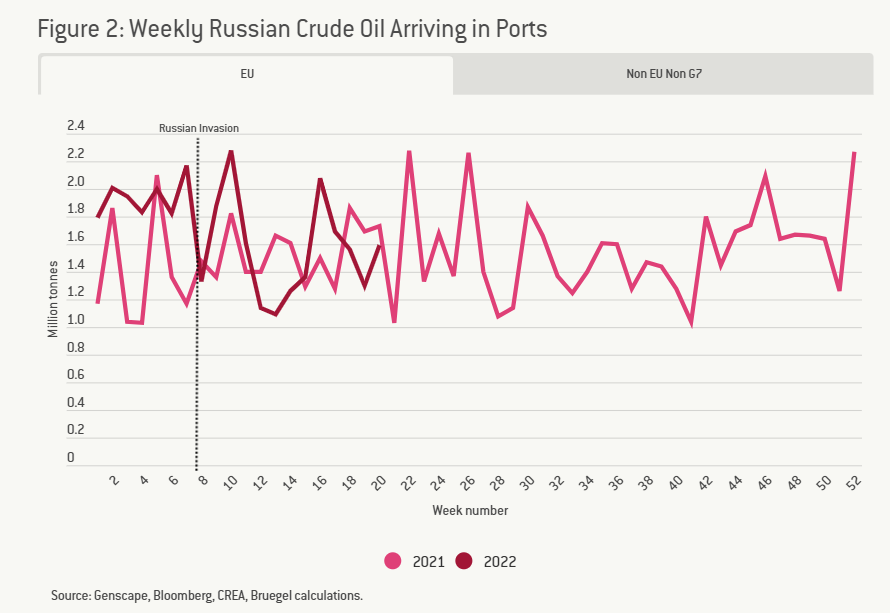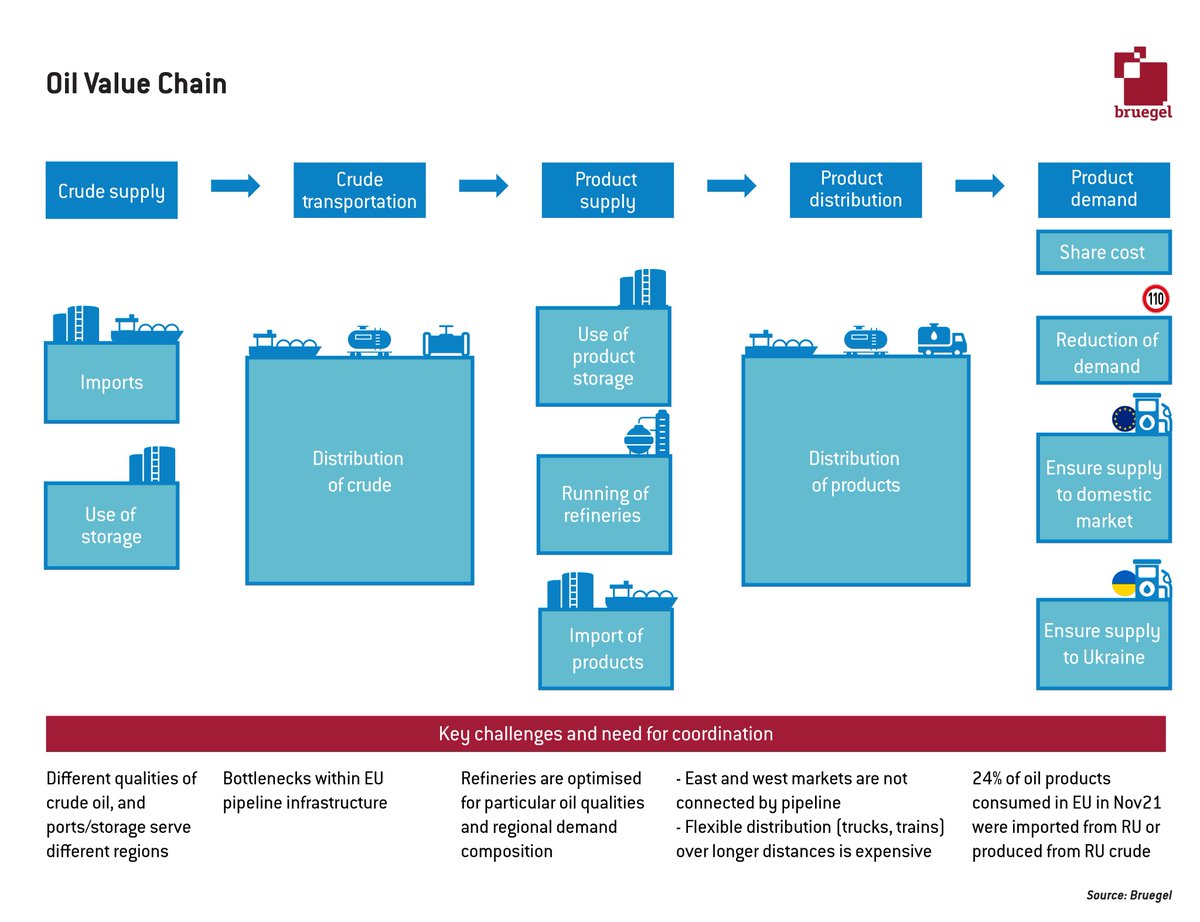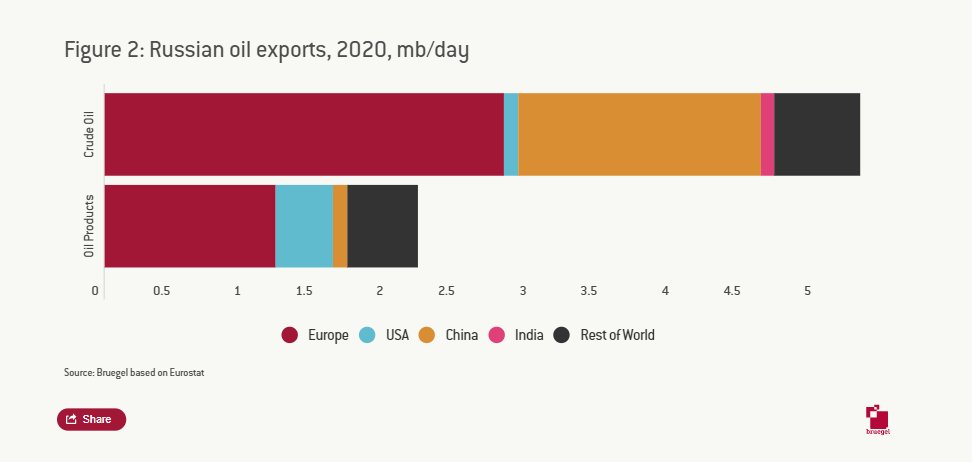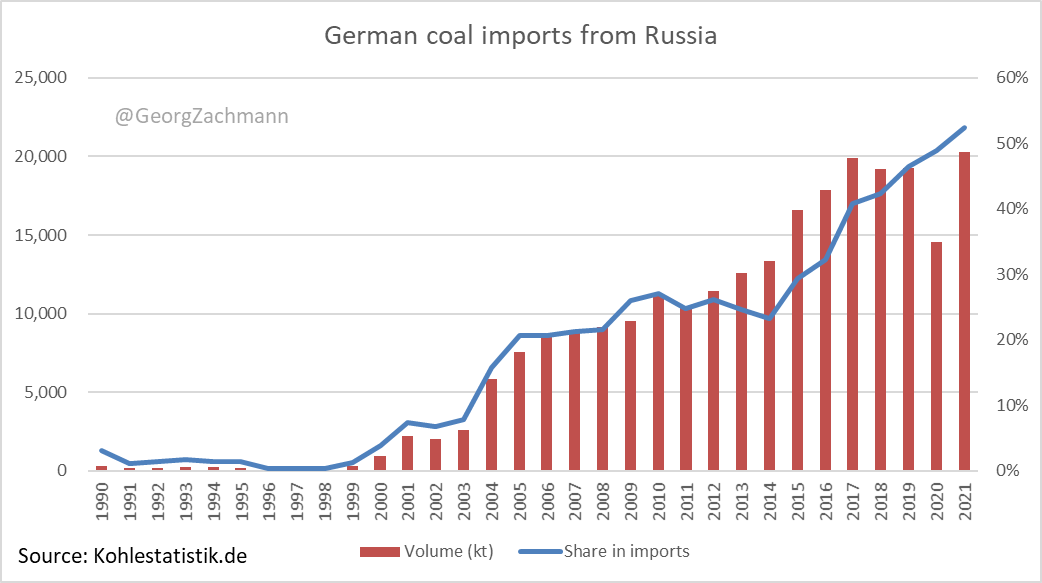
Habemus embargo ("in principle")
1/4 The good news is political:
+ EU was able to engineer unanimity
+ DE substantially contributed (N Druzhba)
+ insurance and oil products included
+ an instrument to build on
1/4 The good news is political:
+ EU was able to engineer unanimity
+ DE substantially contributed (N Druzhba)
+ insurance and oil products included
+ an instrument to build on

2/4 The weaknesses I
- lack of price instrument (e.g., tariff) might initially overcompensate lost volumes by higher prices
- relatively long phase-in will allow RU to seek alternative buyers
bruegel.org/2022/05/a-phas…
- lack of price instrument (e.g., tariff) might initially overcompensate lost volumes by higher prices
- relatively long phase-in will allow RU to seek alternative buyers
bruegel.org/2022/05/a-phas…
3/4 The weaknesses II
- effectiveness mitigated by list of exemptions incl. S Druzhba and shipping services
- specific exemptions show MS pressure points (vacuum oil in HR and long transition in BG)
- limited preparation for RU reaction
- effectiveness mitigated by list of exemptions incl. S Druzhba and shipping services
- specific exemptions show MS pressure points (vacuum oil in HR and long transition in BG)
- limited preparation for RU reaction

4/4 Room for improvement
+ closely monitor RU exports (see our oil tracker↓)
+ tighten screws accordingly (convince other buyers to join sanctions, make exporting RU oil/products more difficult)
+ seek alternative supplies (convince OPEC?)
+ reduce demand (-> no fuel subsidies)
+ closely monitor RU exports (see our oil tracker↓)
+ tighten screws accordingly (convince other buyers to join sanctions, make exporting RU oil/products more difficult)
+ seek alternative supplies (convince OPEC?)
+ reduce demand (-> no fuel subsidies)

Some reading:
Reducing RU export revenues: bruegel.org/2022/04/how-a-…
Improving the management of the domestic shortfall:
bruegel.org/2022/05/the-eu…
Oil ship tracker
bruegel.org/publications/d…
Reducing RU export revenues: bruegel.org/2022/04/how-a-…
Improving the management of the domestic shortfall:
bruegel.org/2022/05/the-eu…
Oil ship tracker
bruegel.org/publications/d…

• • •
Missing some Tweet in this thread? You can try to
force a refresh










